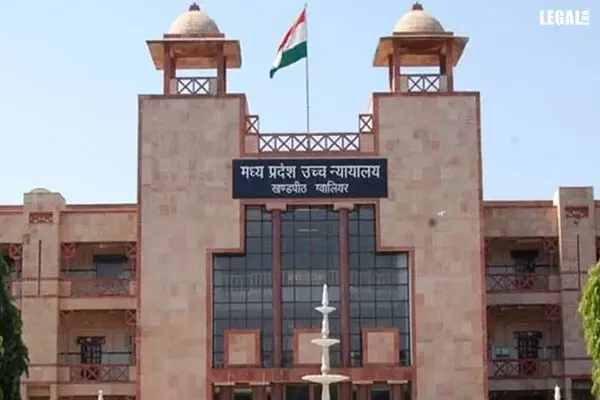- Home
- News
- Articles+
- Aerospace
- Artificial Intelligence
- Agriculture
- Alternate Dispute Resolution
- Arbitration & Mediation
- Banking and Finance
- Bankruptcy
- Book Review
- Bribery & Corruption
- Commercial Litigation
- Competition Law
- Conference Reports
- Consumer Products
- Contract
- Corporate Governance
- Corporate Law
- Covid-19
- Cryptocurrency
- Cybersecurity
- Data Protection
- Defence
- Digital Economy
- E-commerce
- Employment Law
- Energy and Natural Resources
- Entertainment and Sports Law
- Environmental Law
- Environmental, Social, and Governance
- Foreign Direct Investment
- Food and Beverage
- Gaming
- Health Care
- IBC Diaries
- In Focus
- Inclusion & Diversity
- Insurance Law
- Intellectual Property
- International Law
- IP & Tech Era
- Know the Law
- Labour Laws
- Law & Policy and Regulation
- Litigation
- Litigation Funding
- Manufacturing
- Mergers & Acquisitions
- NFTs
- Privacy
- Private Equity
- Project Finance
- Real Estate
- Risk and Compliance
- Student Corner
- Take On Board
- Tax
- Technology Media and Telecom
- Tributes
- Viewpoint
- Zoom In
- Law Firms
- In-House
- Rankings
- E-Magazine
- Legal Era TV
- Events
- Middle East
- Africa
- News
- Articles
- Aerospace
- Artificial Intelligence
- Agriculture
- Alternate Dispute Resolution
- Arbitration & Mediation
- Banking and Finance
- Bankruptcy
- Book Review
- Bribery & Corruption
- Commercial Litigation
- Competition Law
- Conference Reports
- Consumer Products
- Contract
- Corporate Governance
- Corporate Law
- Covid-19
- Cryptocurrency
- Cybersecurity
- Data Protection
- Defence
- Digital Economy
- E-commerce
- Employment Law
- Energy and Natural Resources
- Entertainment and Sports Law
- Environmental Law
- Environmental, Social, and Governance
- Foreign Direct Investment
- Food and Beverage
- Gaming
- Health Care
- IBC Diaries
- In Focus
- Inclusion & Diversity
- Insurance Law
- Intellectual Property
- International Law
- IP & Tech Era
- Know the Law
- Labour Laws
- Law & Policy and Regulation
- Litigation
- Litigation Funding
- Manufacturing
- Mergers & Acquisitions
- NFTs
- Privacy
- Private Equity
- Project Finance
- Real Estate
- Risk and Compliance
- Student Corner
- Take On Board
- Tax
- Technology Media and Telecom
- Tributes
- Viewpoint
- Zoom In
- Law Firms
- In-House
- Rankings
- E-Magazine
- Legal Era TV
- Events
- Middle East
- Africa
Madhya Pradesh High Court Penalises Writ Petitioner ₹25,000 for Suppressing CESTAT Confiscation Order

Madhya Pradesh High Court Penalises Writ Petitioner ₹25,000 for Suppressing CESTAT Confiscation Order
The Madhya Pradesh High Court has levied a fine of ₹25,000 on the petitioner who filed a writ seeking the interim release of goods. This penalty was imposed due to the petitioner's deliberate omission of disclosing the CESTAT's conclusive order of confiscation, a fact that the petitioner was fully aware of.
The High Court Bench comprising Justices Vivek Rusia and Pranay Verma noted that the Tribunal had invalidated the decision to deny the request for interim currency release. The tribunal's ruling had achieved conclusive status concerning provisional release. However, prior to the release of the goods or currency, a definitive order of confiscation had been issued. Consequently, the directive for provisional release cannot be adhered to.
The importer brought in a single consignment of nutritional supplements and fulfilled the customs duty payment requirement. Prior to the goods' clearance, the Directorate of Revenue Intelligence (DRI) in Indore subjected them to inspection, resulting in their temporary detention as documented in the Panchnama, followed by the issuance of a seizure memo.
The importer submitted a request for the interim release of the confiscated items. As part of the inquiry, the petitioner's residential property underwent a search, revealing the discovery of ₹82,67,900 and $5,000, which were subsequently seized and held by the DRI officials.
The petitioner lodged an application seeking the interim release of the seized currency. However, the department declined the petitioner's plea, prompting the petitioner to contest this decision through a Customs Appeal submitted to the CESTAT. Subsequently, the Tribunal overturned the initial ruling.
The petitioner presented appeals to the Commissioner of Customs, urging for the release of the currency comprising ₹82,67,900 and $5,000. These appeals were dispatched via Registered AD Post and subsequent reminders were also sent.
Furthermore, the petitioner pursued authorisation from the Principal Commissioner of Customs (Adjudication) in order to secure the release of the seized currency.
The Deputy Commissioner of Customs furnished details to the Commissioner, conveying that the Chief Commissioner has granted approval for the acceptance of the final order from the CESTAT.
The petitioner asserted that the CESTAT's order has reached a conclusive state since the department has endorsed it. Consequently, there exists no justification for withholding the release of the currency to the petitioner.
The department argued that the petitioner's application for provisional release, accompanied by relevant documentation, was forwarded on December 23, 2022, to the Principal Commissioner of Customs (Adjudication) in Mumbai. The purpose was to effectuate the release of the currency in line with the CESTAT final order.
However, the Principal Commissioner of Customs (Adjudication), Mumbai, subsequently decreed the complete confiscation of the currency under the stipulations of Section 121 of the Customs Act, 1962. In light of the concluded adjudication, the petitioner's plea for provisional release is presently inadmissible. The petitioner is pursuing an alternative recourse by considering recourse to the CESTAT against the final order issued on January 11, 2023.Top of Form
The Court observed that the lower authorities did not contest their adherence to the Tribunal's directive for provisional release. However, the goods' impending release was intercepted by the subsequent issuance of a final confiscation order, which holds the potential for appeal. Consequently, the Tribunal's initial order cannot be executed.



